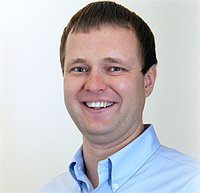Deep Learning for Software Engineering
Abstract: Bridging the abstraction gap between concepts and source code is the essence of software engineering (SE). SE researchers regularly use machine learning to bridge this gap, but there are two fundamental issues with traditional applications of machine learning in SE research. Traditional applications are too reliant on human intuition, and they are not capable of learning expressive yet efficient internal representations. Ultimately, SE research needs approaches that can automatically learn representations of massive, heterogeneous, datasets in situ, apply the learned features to a particular task and possibly transfer knowledge from task to task. Improvements in both computational power and the amount of memory in modern computer architectures have enabled new approaches to canonical machine learning tasks. Specifically, these architectural advances have enabled machines that are capable of learning deep, compositional representations of massive data depots. This rise of Deep Learning (DL) has led to tremendous advances in several fields. Given the complexity of software repositories, deep learning has the potential to usher in new analytical frameworks and methodologies for SE research and the practical applications it reaches. Conversely, the development of DL algorithms and models represents an entirely new type of software engineering that is still rapidly evolving. This talk examines how DL algorithms can enhance and automate several critical SE tasks involving natural language, code, and graphical user interfaces including program prototyping and source code modifications. We demonstrate that deep learners significantly outperform state-of-practice canonical machine learning approaches for these tasks. These examples illustrate transformative potential that DL can have on the science and practice of software engineering by moving SE research from the art of feature engineering to the science of automated discovery. We also explore how advancements in software engineering tools and practices can enable further progress in making DL frameworks more accessible and useful for researchers, programmers, and data scientists. The talk will conclude with a discussion of promising future directions and opportunities for Deep Learning for SE and SE for Deep Learning.
Denys Poshyvanyk is a Chancellor Professor and a Graduate Director in the Computer Science Department at William and Mary (see W&M by numbers) where he leads SEMERU research group. He received his Ph.D. from Wayne State University, where he was advised by Dr. Andrian Marcus. His current research is in the area of software engineering; software analytics; evolution and maintenance; program comprehension; deep learning for software engineering (DL4SE) and SE for deep learning (SE4DL); mobile app development, testing, and security; reverse engineering; repository mining; and traceability. He currently serves on the editorial board of ACM Transactions on Software Engineering and Methodology (TOSEM), Empirical Software Engineering Journal (EMSE, Springer), Journal of Software: Evolution and Process (JSEP, Wiley) and Science of Computer Programming (SCP, Elsevier).
Thu 14 SepDisplayed time zone: Amsterdam, Berlin, Bern, Rome, Stockholm, Vienna change
10:40 - 12:00 | SATE - Software Engineering at the Era of LLMsSATE - Software Engineering at the Era of LLMs at Room FR Chair(s): Xin Xia Huawei Technologies | ||
10:40 40mTalk | Testing the Limits: What Breaks and How to Partially Fix LLM4ASE? SATE - Software Engineering at the Era of LLMs David Lo Singapore Management University Pre-print | ||
11:20 40mTalk | Deep Learning for Software Engineering SATE - Software Engineering at the Era of LLMs Denys Poshyvanyk William & Mary | ||
